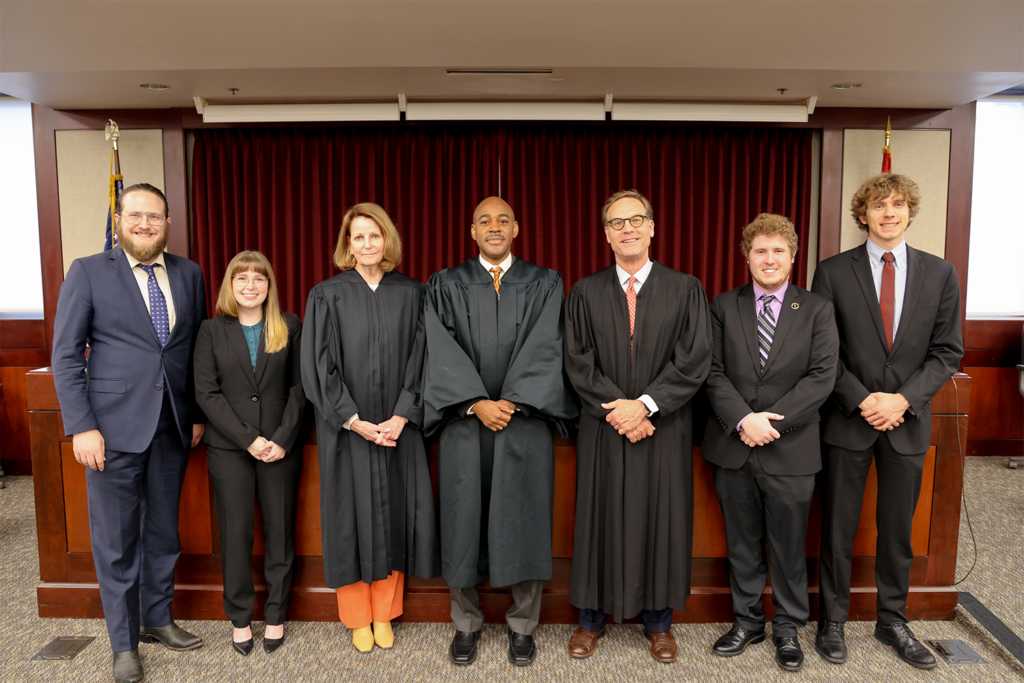Students at the University of Tennessee College of Law had the opportunity to argue before a panel of federal judges in the final round of the 49th annual Advocates’ Prize Competition.
After two preliminary rounds involving 15 students, Abbey Mullins, Ethan Moore, Elijah Parkhurst, and CJ Parrish presented oral arguments to a distinguished panel consisting of the Honorable Andre B. Mathis, United States Court of Appeals for the Sixth Circuit; the Honorable Thomas Parker, United States District Judge for the Western District of Tennessee; and the Honorable Kathleen Williams, United States District Judge for the Southern District of Florida.
Following 40 minutes of intense arguments, the panel named Parkhurst and Parrish Best Team and Mullins and Moore Second Best Team. Additionally, Jhed Manalo and Erin Brennan received the award for Best Brief and Mullins and Moore received the award for Second Best Brief. Parkhurst received the prestigious Spenser Powell Award as Top Advocate.
“The Advocates’ Prize competition has been a highlight at Tennessee Law for nearly 50 years,” said Rodd Barckhoff, Interim Director, Center for Advocacy and Dispute Resolution. “A successful competition requires students who are willing to invest the time and energy and apply their skills as advocates, and this year’s contestants were extremely skilled and polished.”
Advocates’ Prize Chair, Gabriella Choate, wrote the problem, prepared an appellate record, and coordinated the competition. Choate, who received the Spenser Powell Award in last year’s competition, called the Advocates’ Prize competition one of the most challenging and rewarding experiences of her time in law school.
“The thrill of crafting unique arguments in both my brief and oral arguments, responding to tough questions from the bench, and ultimately winning the competition was an incredible opportunity that established my passion for advocacy,” said Choate.
Choate’s role as Chair provided an additional level of leadership experience and strengthened her appreciation for advocacy.
“Writing the problem for this year’s competition was both a creative and intellectual challenge that took months of difficult, but fruitful, work,” said Choate. “It has been inspiring to see the competitors engage in the issues so deeply and develop their advocacy skills so significantly in such a short amount of time.”
